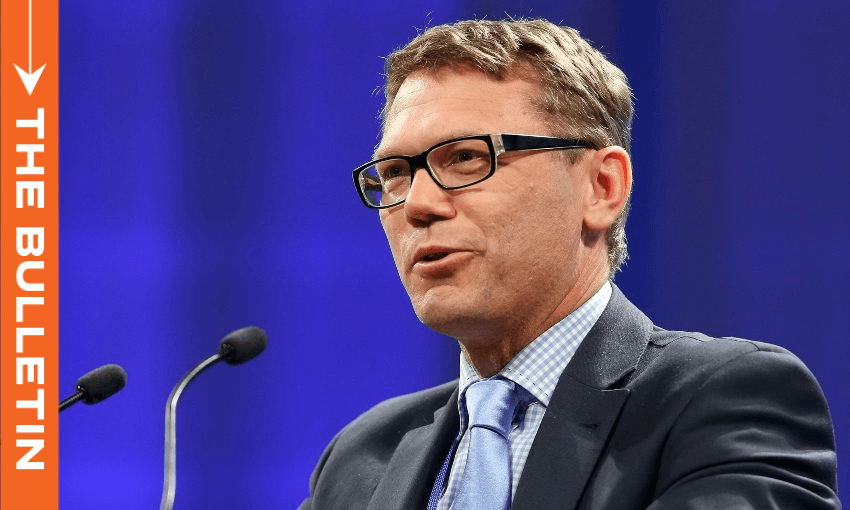The justice minister will be grilled on NZ’s human rights record at the UN later today, writes Catherine McGregor in this excerpt from The Bulletin, The Spinoff’s morning news round-up. To receive The Bulletin in full each weekday, sign up here.
NZ’s turn in front of the class
At 7pm tonight, justice minister Paul Goldsmith will take his seat inside the Human Rights and Alliance of Civilizations Room at the United Nations in Geneva, Switzerland. Along with secretary for justice Andrew Kibblewhite, Goldsmith is fronting up for New Zealand’s Universal Periodic Review (UPR), a peer review of our human rights record that takes place approximately every 4-5 years. New Zealand’s last UPR was in 2019. Every UN member state undergoes the same process, which involves the state representative highlighting recent human rights developments in their country and discussing if and how they’ve implemented recommendations posed during their previous reviews. NZ can choose to accept or reject any recommendation made during the UPR; none of the recommendations are binding. Goldsmith will face questions from the 47-member Human Rights Council during the session, which is facilitated by representatives from Argentina, Bangladesh, and Morocco, the nations chosen at random as NZ’s rapporteurs for the review. A webcast of the session will be streamed here.
Human Rights Commission report highlights concerns
Among the documents serving as the basis for the review is a government-submitted report summarising the current state of human rights in New Zealand. It’s something of a 30,000-foot view of the situation, by necessity, and government actions are presented in a favourable light. For example, the highly contentious disestablishment of the Māori Health Authority is “an important part of achieving better health outcomes for all New Zealanders, including Māori”. The alternative view was provided in a series of pre-session submissions from local human rights experts and groups, including the NZ Human Rights Commission. The commission’s report to the UN highlighted its “concern that the new Government has agreed to remove, review or repeal numerous policies and laws that provide for Māori” and that recent law changes (such as the repeal of fair pay legislation) “undermine workers’ rights and their dignity, without adequate consultation”. Goldsmith can expect plenty of questions on both topics at tonight’s review.
The fall and rise of Paul Goldsmith, esq
Today’s UN appearance caps off a fairly memorable week for Goldsmith. On Wednesday, while he was in London, he was named as Melissa Lee’s replacement as minister for media and communications, adding to his already substantial workload as minister for justice, state-owned enterprises, Waitangi Tribunal claims, and arts, culture and heritage. Goldsmith has gone from a ministerial outsider to one of Christopher Luxon’s most dependable lieutenants – a remarkable comeback, says the Herald’s Audrey Young (paywalled), “Three years ago, he was in the political doldrums. Following the blunders and drubbing at the 2020 election, National leader Judith Collins had just demoted him from his No 3 ranking earned under Simon Bridges to No 12 and taken finance from him. Today he is on the front bench at No 7.”
Goldsmith makes his first comments about new media role
Speaking to reporters on Friday, Goldsmith was keen to communicate a sense of urgency about the issues facing the media. He told the Herald’s “media insider” Shayne Currie (paywalled) that one of his key challenges was “how do we continue to have a strong and economically sustainable local media for the obvious reasons – it’s so fundamental to our democratic makeup” in light of the decline in advertising revenue. While current affairs shows like the soon-to-close Sunday are an endangered species here, they’re going strong in Australia. This week’s Mediawatch on RNZ looked at why, and found it came down to the Australian channels’ more tabloid, risky, and scoop-focused approach. “Morally, they go beyond the pale a lot of times,” says Mumbrella’s Nathan Jolly. “They’ll pay money, you know, as we’ve seen with Bruce Lehrmann. But ethically, they fall short at times and the networks get sued.”
